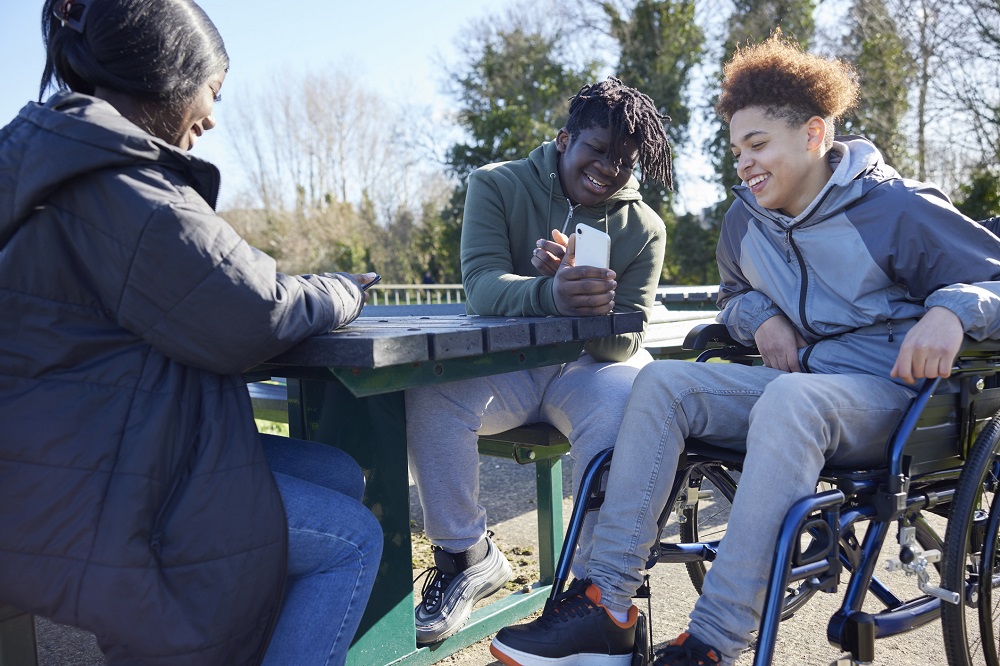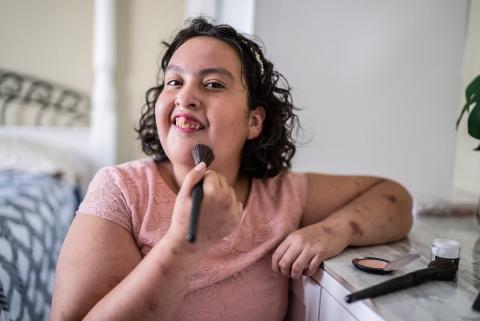If your teen seems stressed by social situations, it may be tempting to let them stay at home. Sometimes this is the right thing to do. But avoiding these situations won’t help them build confidence in social situations and they may feel isolated and lonely. So here are some tips for helping them overcome social anxiety.
It isn’t about forcing your teen to become someone they aren’t – they’re great the way they are! This is particularly important for neurodivergent young people, there are lots of ways to be and they’re all okay. It’s just about helping them feel more at ease in everyday situations, so they don’t miss out.
You can find more tips for helping teens with anxiety here.
Tips for neurodivergent teens
If your child is neurodivergent social anxiety is often quite common. Teenagers with autism for example prefer being in small groups of people or only with people for a one to one. It can be unhelpful to encourage them into busy social situations as this can make their anxiety much worse and lead to ‘masking’. The best thing is for them to be environments they are comfortable with.
Our page on helping neurodivergent teens with anxiety has more advice.
Tips for helping your teen with social anxiety
If your child is not neurodivergent here are some tips for helping them overcome social anxiety.
Tip #1: Focus on their strengths
If your teen’s worried about social situations like parties, you may try to jolly them along by saying things like ‘There’s no need to be shy’. But this may make them feel even more self-conscious, as if being shy is something to feel bad about. And there’s nothing wrong with being shy – lots of us find meeting new people or being at social occasions daunting. Instead you could focus on their strengths, like being a good listener, thinking before they speak or being a loyal friend once they get to know someone.
Tip #2: Listen
We’re always saying this, but it really is good to listen to what your teen has to say so you can understand what it is about social situations that bothers them. Our page on talking and listening to your teen has tips to help you encourage them to confide in you.
Tip #3: Help them find ways to cope
Together, you could try to work out some ways to make social situations easier for them. For example, you could:
- Practise things for them to say when they meet new people.
- Make a plan for them to go to a party or other occasion with a friend, so they don’t have to arrive on their own.
- Arrange to call them after an hour and see if they need to be picked up, or if they’re happy to stay longer.
- Work out a signal between you that they can use to get out of situations they’re not happy with. For example, they could text you a quick 'X' or a specific emoji and you could call them back and tell them you need them to come home. This way they have the comfort of knowing they can go home whenever they want without losing face in front of their friends
Tip #4: Help them relax
Check out the tips on our page on helping your teen with anxiety for lots of suggestions of way to relax, from trying mindfulness to burning off some energy.
Tip #5: Be positive
Let your teen know that you understand how scary it can be to put themselves out there, but you’re really proud that they’re trying. Showing you believe in them will boost their confidence no end.
 Activities & Play
Activities & Play Behaviour
Behaviour Childcare
Childcare Development & Growing Up
Development & Growing Up Family, Friends & Relationships
Family, Friends & Relationships Feeding Your Baby
Feeding Your Baby Food & Eating
Food & Eating Health & Safety
Health & Safety Mental Health & Wellbeing
Mental Health & Wellbeing Money & Work
Money & Work Online Behaviour & Safety
Online Behaviour & Safety Pregnancy & First Days
Pregnancy & First Days School & Education
School & Education Sleep
Sleep









 Behaviour
Behaviour
 Mental Health & Wellbeing
Mental Health & Wellbeing